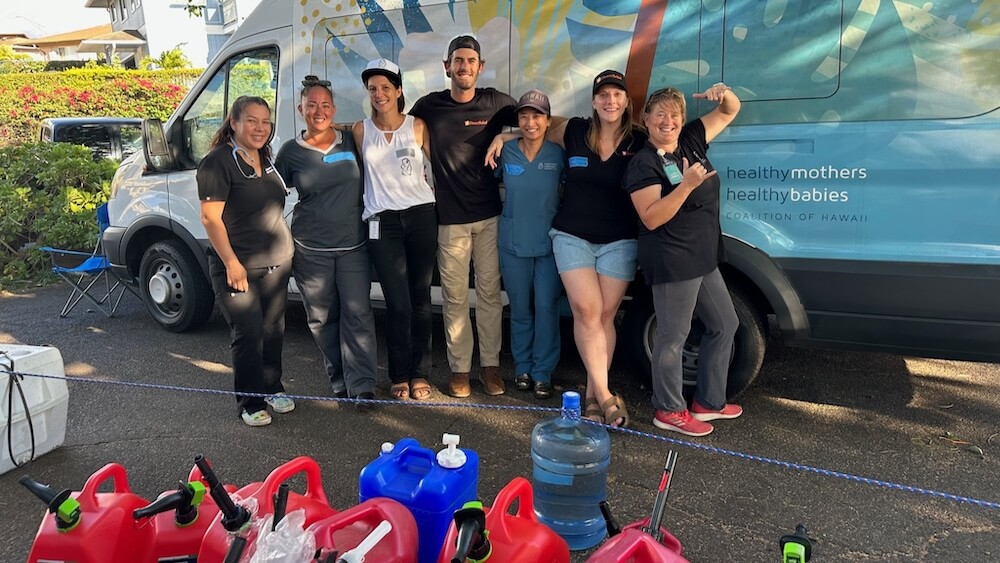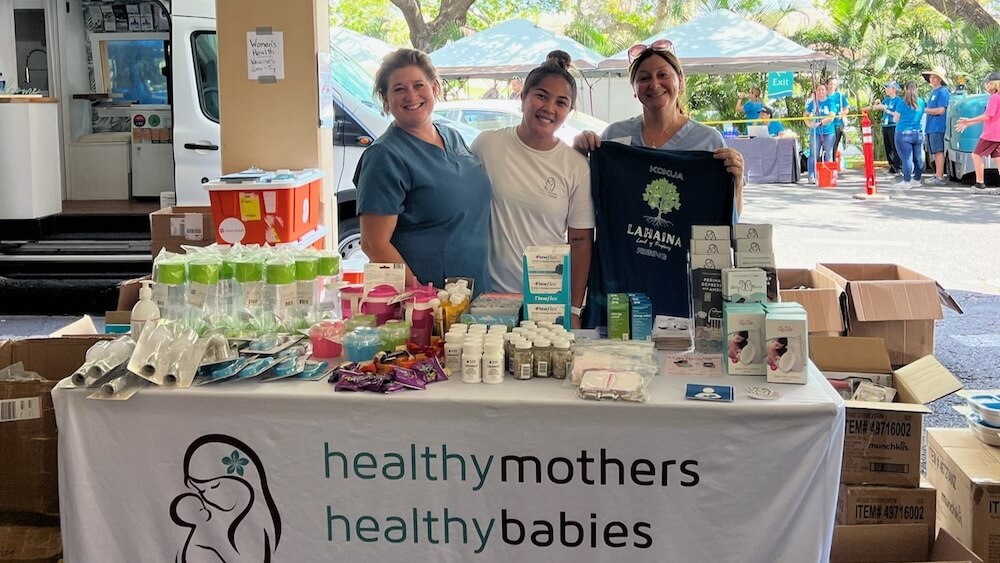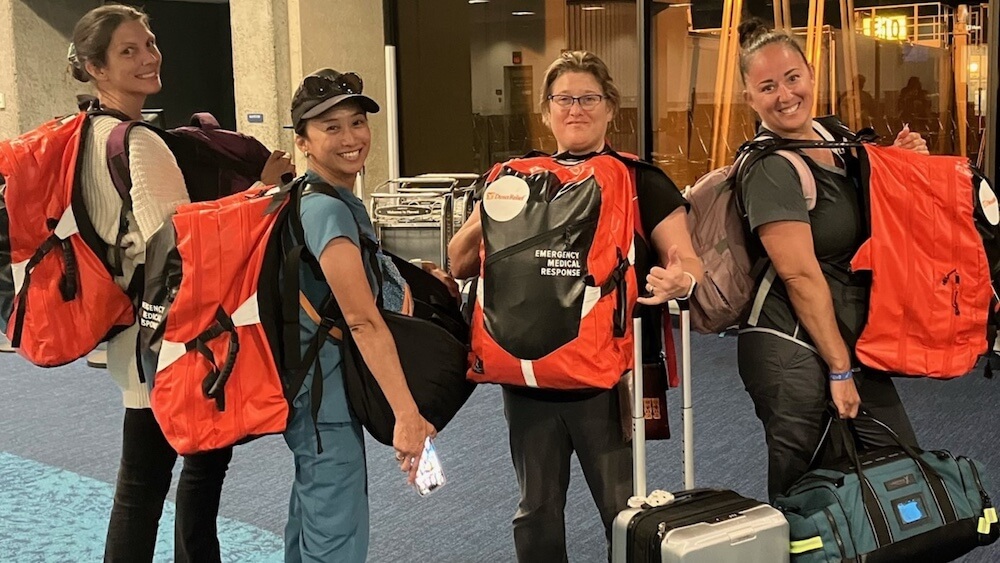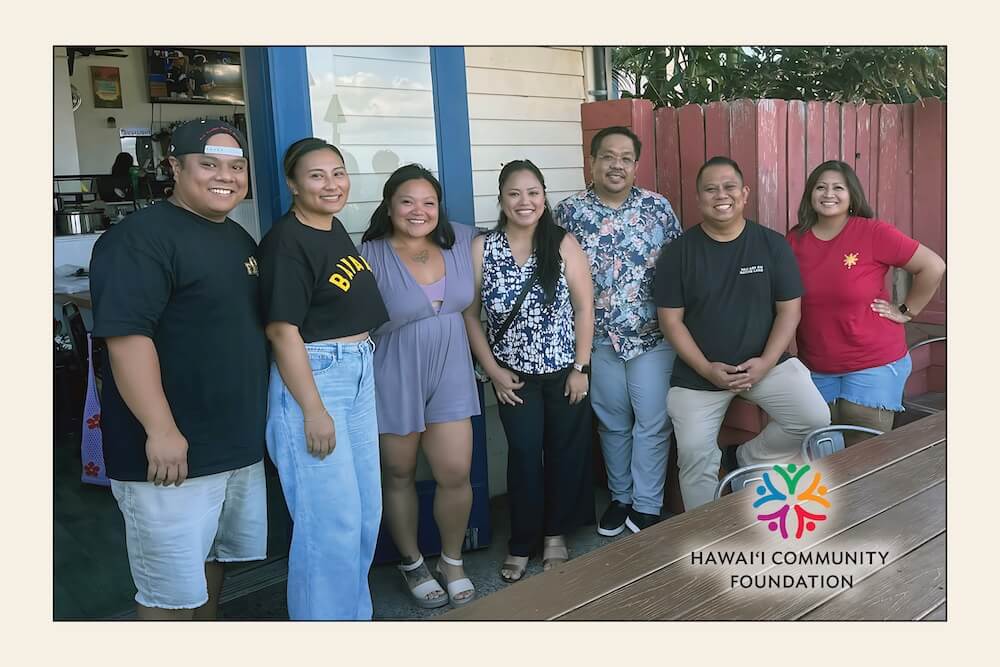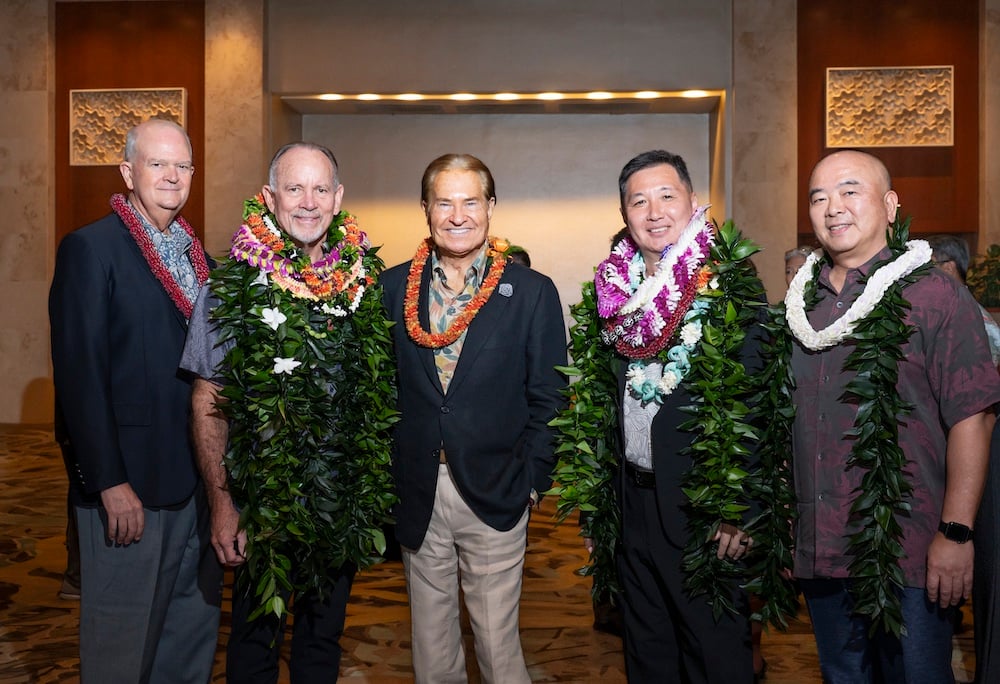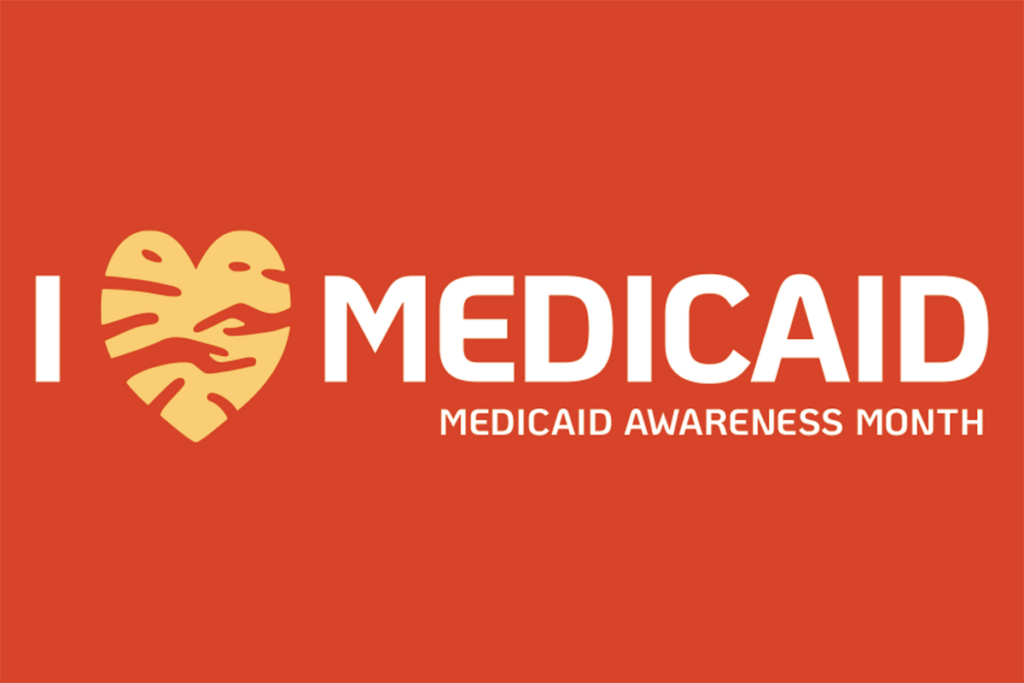From Crisis to Care in Lahaina
A Community Response to Health and Wellbeing
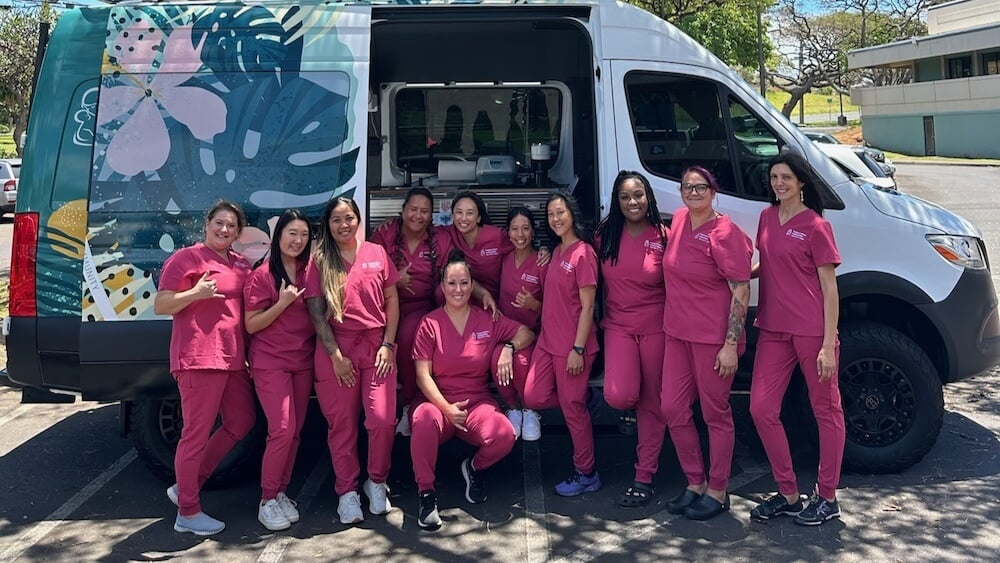
Fifteen minutes north of Lahaina town, Pohaku Park transformed into a vital resource hub in the days following Maui’s devastating wildfires. Among the organizations providing critical support was the Healthy Mothers Healthy Babies Coalition of Hawaii (HMHB), whose mobile clinic became a beacon of hope for displaced families seeking healthcare, essential supplies, and emotional support.
By August 10, 2023, HMHB’s team was on the ground, demonstrating the kind of response that would prove crucial in the disaster’s aftermath. Working alongside first responders and medical professionals, they quickly established services between physical locations, reaching shelters, hotels, and homes to ensure care reached those who couldn’t come to them.
When the Maui Strong Fund of the Hawaiʻi Community Foundation (HCF) received an application from HMHB, it had already been a long-time partner of HCF, and was one of the first grantees of the Maui Strong Fund by August 11. “From the earliest moments of this crisis, our approach has been to listen deeply to community needs and respond strategically. HMHB exemplifies exactly what we look for in our partners—they had both the established community trust to provide immediate, culturally-sensitive care and the organizational strength to support long-term recovery,” says Kehau Meyer, senior program officer, Maui Recovery Effort.
While HMHB’s mission centers on maternal and child health, the unprecedented scale of the Maui disaster called for a broader vision. “When you take care of mothers and pregnant and parenting people, you really take care of a whole community,” says executive director Sunny Chen. This philosophy guided HMHB’s expanded response—from rescuing elders from non-operational chair lifts to delivering vital prescriptions and generator fuel.
The organization’s focus remained sharp on its core mission, prioritizing essential supplies for new mothers, including diapers and manual breast pumps for families with newborns as young as one week old. As HMHB’s response spanned across communities, its approach was informed by a commitment to importance of cultural awareness in disaster response. Through partnerships with organizations like Hui No Ke Ola Pono and Nā ‘Aikāne, it ensured their work aligned with Native Hawaiian values and it offers multilingual support, offering services in ʻŌlelo Hawaiʻi, Tagalog, and Spanish.
HMHB’s response strategy continues to evolve, focusing on expanding mental health and emotional support services, strengthening healthcare access, and fortifying healthcare infrastructure through partnerships and advocacy.
“Our efforts to provide emotional support and first aid were crucial as families faced the daunting task of returning to their homes,” Chen says, and, in the long-term, “Supporting caregivers and parents, we were directly supporting the broader family network, contributing significantly to the healing and rebuilding of the community.”
As Maui transitions from immediate response to long-term recovery, significant challenges remain. Access to healthcare, particularly maternal and child health services, continues to be a critical concern. Mental health support, affordable housing, childcare, and basic necessities are ongoing challenges for many families.
The Maui wildfire response has highlighted crucial lessons about disaster recovery. Flexibility, strong partnerships, and cultural sensitivity emerged as key components of effective crisis response.
Through its work in Maui, HMHB demonstrates how specialized organizations can adapt to meet broader community needs while maintaining their core mission. Statewide organizations serving families and children have also been responsive, including Child & Family Service, which expanded support for unmet needs to wildfire survivors, as well as Partners in Development Foundation, which provided critical support for displaced families, two among dozens of programs funded by the Maui Strong Fund.
As families begin to move into longer-term housing solutions, HMHB has adapted its programs to focus on rebuilding family structures and providing child-centered support. Through distribution of baby essentials, collaboration with childcare, families are supported in their transition. In response to the rising mental health needs following the disaster, HMHB has integrated more mental health professionals into its teams, offering ongoing trauma-informed care. “Emotional support became as critical as physical care, so we adjusted our resources to meet these growing mental health needs,” says Chen.
The public can support ongoing recovery efforts through financial donations, essential supplies, and volunteer support. More importantly, their experience underscores the need for policy changes that better support family-focused disaster recovery and preparedness in Hawaiʻi—ensuring that, when future challenges arise, communities are better prepared to respond.
Tune in to Aloha Maui, brought to you by the Hawai`i Community Foundation, for Episode 8 to hear the Healthy Mothers Healthy Babies Coalition of Hawaii team talk about their work. Watch or listen starting November 27, 2024.
Hawai`i Community Foundation’s Maui Strong Fund is providing financial resources to support the immediate and long-term recovery needs for the people and places affected by the devastating Maui wildfires. For more information, go to the Maui Strong Fund of Hawai`i Community Foundation.
